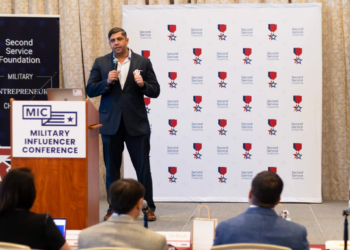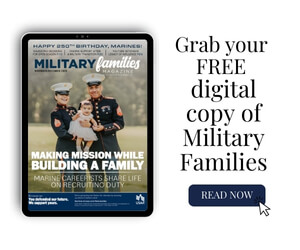The first task after enlisting in the military is to plan for your exit, according to one career expert. Effectively summarizing your experiences to highlight your strengths on a civilian resume can be the difference between landing your dream job and an extended job search.

“It doesn’t matter if you’re going to do two or 20 years,” said John Renken, an Army veteran and chief executive officer of Sales Platoon. “At some point, your time in the service ends.”
Renken said that starting with an exit plan prepares service members to approach their careers just as they approach a military mission. Service members should understand what they want in a job to plan ahead.
“It’s not until we decide what we want to do with our future that we can interpret our experience and reflect that on our resume,” Renken said. “If I hate sales, it doesn’t make any difference that I effectively recruited and led missions.”
Job descriptions and ChatGPT
As such, Renken recommended that service members take note of job descriptions and consider everything – including the tasks, conditions and standards required. Then think about how that military experience correlates with the job.
For example, Renken said, “I was a squad leader, team leader or company commander. Take what they’ve said [in the job description] and write that in [civilian] language but with your experience and what you did in the military.
Regardless of the duties a member may have had during their time in service, Renken stressed that “there’s no such thing as non-transferable skills.” For those who get stuck trying to translate military experience into civilian language, he suggested using the artificial intelligence chatbot ChatGPT. Input any military occupation, and ChatGPT “will translate [your military job] into civilian language,” he said.
Artificial intelligence can rewrite your military work, but it cannot prevent the often-cited concern of age discrimination, according to Renken. Starting a civilian resume with “20+ years of experience” might be intended to demonstrate experience and value; however, it primarily highlights the applicant’s age.
For this reason, Renken suggested focusing on “the last three to five years in management.” However, he said if a position “requires 20 years of experience in project management, then the vast majority of your resume should be focused on fulfilling that 20 years, and you can do so in four or five lines.”
Highlight skills via bullet point
Renken highly recommended listing experience in a few short lines using a bulleted format. Each position should clearly explain responsibilities, quantifiable achievements and measurable results. Maintaining such a format ensures that the resume is easy to read and communicates accomplishments clearly.
Job recruiters spend only 7.4 seconds reviewing resumes, according to a 2018 study. Additionally, resumes should be no more than two pages in length.
“You want to highlight what’s most important. The shorter, the better,” Renken said.
But Renken wants service members and veterans to be confident in their skills when deciding what to include on their resumes.
“As a veteran, you have skills that nobody else in the market has,” he said. “You’ve dealt with the duress of war, and every company needs people that can operate under pressure.”
Avoid resume templates
For these reasons and more, Renken discouraged the use of resume templates. According to several resume-building sites, resume templates might be outdated and are often not optimized for applicant tracking systems (ATS), thereby causing the resumes of very qualified applicants to be rejected by the ATS.
Outdated formats and outdated statements go hand in hand. Renken suggested avoiding dated phrases such as “seeking a position” or “looking for a position” and instead stating, “I’m applying for the position as a project manager because my experience in the military makes me your best candidate.”
Writing a civilian resume, like an annual evaluation or fitness report, takes time and requires due diligence. If the resume writing process is still challenging, connect with a professional resume writer. Many resume writers offer free consultations “because they’re trying to land your business. [Sometimes] they’ll tell you how to structure your resume,” said Renken.











































